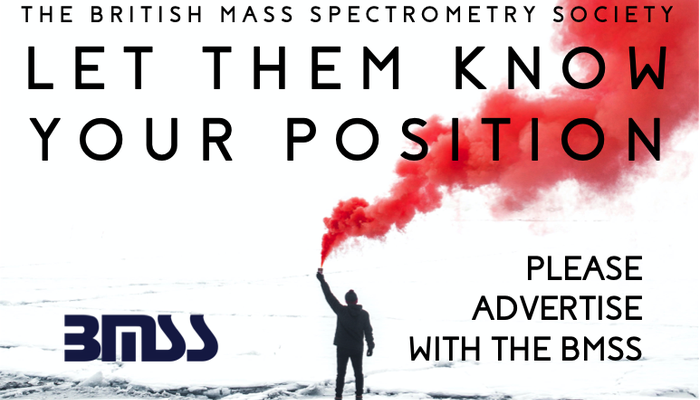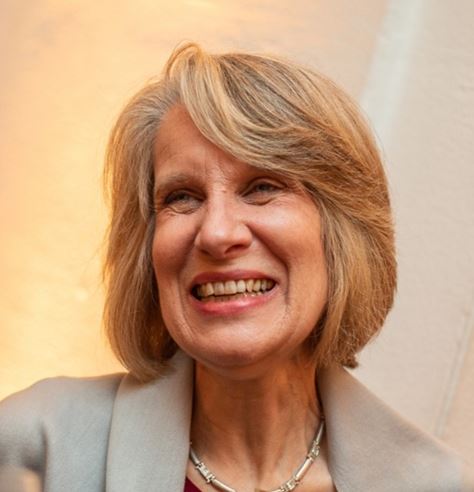Jane Thomas-Oates
Jane Thomas-Oates, Chair of Analytical Science in the Department of Chemistry, and Director of the Centre of Excellence in Mass Spectrometry, University of York.
Interviewed by Mervyn Lewis, Associate Editor
Originally published September 2020
How did you first become interested in mass spectrometry?
I was properly introduced to mass spectrometry and the power of what it can do as a biochemistry undergraduate at Imperial College. Our year 2 protein chemistry lectures from Howard Morris and Anne Dell were very exciting and made a huge impression on me. These were complemented by what I realise now was a very ambitious lab session; we derivatised unknown peptides and saw them analysed to give EI spectra, which we then had to interpret to determine an amino acid sequence. I was instantly hooked, and to this day am still delighted to sit with my calculator and a spectrum to interpret. From that stage early in year 2 there was nothing else I wanted to do but mass spectrometry. There was, perhaps unwisely, no plan B for either my undergraduate research project or PhD applications, so I was very fortunate that Howard accepted me to do my project in his team and then Anne took me on as her first PhD student.
It was an exceptional time to be starting a career in mass spectrometry. The enormous potential of mass spectrometry for larger molecules, with the advent of user-friendly soft ionization techniques, in particular fast atom bombardment (FAB), and the availability at Imperial of magnetic sector analysers such as the ZAB-HF from VG Analytical that were capable of transmitting and analysing the much larger biological molecules ionized using FAB, represented an unprecedented leap forward in capability. That new instrumentation was state-of-the-art at the time and brought within reach for the first time the analysis of a range of biomolecules, including biologically relevant carbohydrates, which became the focus of my PhD.
What do you think are your greatest contributions in encouraging young people to pursue mass spectrometry as a career?
I spent a good deal of my early years in mass spectrometry working on the instrumentation, learning how it works, cleaning it, reassembling it, and stretching it to perform at the limits of what was possible. I developed a love of and enthusiasm for the instrumentation itself, alongside my delight in solving the biological and biochemical problems it allows us to address. Being able to share and transfer those dual enthusiasms, and the pleasure and fulfillment they bring me, to the next generation has been and continues to be a real joy.
Working and sharing those enthusiasms with the next generation of scientists is what really motivates me. I love spending time looking with them in detail at mass spectral data. More recently, time at the instrument with a colleague has become my guilty pleasure. Possibly the hardest thing for me to accept in the last 10-15 years, as my responsibilities have taken me more and more out of the lab, is that I can no longer reasonably expect to be the most expert instrument operator in the group.
In what new areas could mass spectrometry make a significant impact - are new approaches and thinking necessary for these applications?
It is my belief that real, challenging biomolecular questions derived from the broadest range of disciplines are what drive the development of instrumentation and analytical approaches. State-of-the-art kit and approaches in turn allow ever more ambitious application challenges to be addressed; these then drive further breakthroughs in instrument performance and outcomes, in a virtuous cycle. Cool samples will not yield their best data if the instrument and its capabilities are not fully understood and exploited, while even the most ground-breaking instrumentation won’t teach us much of value if we only ever aspire to analyse mass calibrants.
The quest for ever better limits of detection, as well as mass accuracies and resolution will, I suspect, continue to be a focus, even though the extraordinary capabilities (and designs) of current instrumentation were unimaginable when I started out. Innovative sample handling, while perhaps seen as less glamorous than hardware developments, will continue to play a central role in broadening and deepening applications.
The areas of imaging and, in particular, single cell analysis have massive potential that are still relatively untapped. Informatics and how we deal with the data we generate will need to continue to be huge areas of growth, and I would hope to see the area of miniaturization and fieldable instrumentation make more big strides.
What advice would you give a scientist starting out in mass spectrometry?
First of all, thoroughly know your instruments and how they work, and identify those application areas that you find inspirational and compelling. Combining an understanding of and hands-on confidence with the hardware, with the potential it has to address important questions, will give you the drive to continue learning, and allow you to push the field forward with your own take on how to apply that kit to answer real questions. Importantly, knowing both instrumentation and its applications also makes you more broadly employable, as many of my former group members know.
Secondly, know how to use and interpret the mass spectral data you can generate. Understanding the chemistry underpinning fragmentation pathways and mechanisms enables interpretation of spectra de novo which makes it possible to elucidate novel structures – a huge satisfaction in itself. Informatics approaches and the information they allow us to access, for example in -omics studies, are seductive and mind-blowing. However, I have learned how important it is not to let our inevitable enthusiasm for these outputs and what they could tell us make us forget rigor – we still need to sanity check and manually verify what we think the algorithms and search engines are telling us.
Where do you see the future of mass spectrometry in the next 10 years - can it still be a career path for young people?
Absolutely; a career in mass spectrometry is probably an even more exciting prospect now than it ever was, given the instrumentation and capabilities we now have at our disposal and the breadth of applications that this brings within our reach. Mass spectrometry is an area in which the UK has significant strengths and a long history, and I see it very much as an exciting and engaging career path for the next generation. Learning your craft as a mass spectrometrist is a delight – the enjoyment and satisfaction to be gained from understanding an instrument and how to make it perform as well as it can to address your scientific questions rigorously is truly satisfying and exciting.
The field of mass spectrometry is still moving very fast; the brand-new technologies that were available to me when I started out, and that revolutionized biological mass spectrometry at the time, have now pretty much completely disappeared. The instruments and the whole way we use mass spectrometry now (for example in -omics approaches) were unimaginable then. This makes being asked to predict the future very tricky. However, I hope that the current trend towards adoption of mass spectrometry by a broadening user base across ever more disciplines will continue to gain momentum and be an area of significant progress in the next 10 years. Interdisciplinary studies in the areas of the environment, cultural heritage, history and archaeology, climate change and climate studies, and agriculture and food production I believe are all areas in which mass spectrometry is poised to take a much more central role.
Could you describe your lasting memories/most satisfying achievements of your career in mass spectrometry?
Without a doubt the most memorable and delightful aspect of my 40 years in mass spectrometry is the wonderful people with whom I have had so much pleasure working. The young scientists I have had the privilege of training and guiding are what I am most proud of, have made a huge impact on me, and will always have a very special place in my heart. Through the York Centre of Excellence in Mass Spectrometry, I have, with my colleagues, been delighted to be able to introduce to mass spectrometry scientists who would otherwise not have had the chance to do their own analyses on state-of-the-art instruments.
My amazing collaborators across the range of disciplines into which my biomolecular curiosity has taken me (chemists, physicists, mathematicians, microbiologists, plant scientists, engineers, environmental scientists, informaticists, archaeologists, conservators, and many more) have given me new perspectives, generated endless ideas, and been so central to the work my group has done. Their enthusiasm and patience have kept me learning new things, which is the most enormous fun.
My group members, past and present, have shared and provided all the scientific and less scientific fun, made me laugh endlessly (and cry occasionally), and have been the source of all that is most memorable (you know who you are!).


